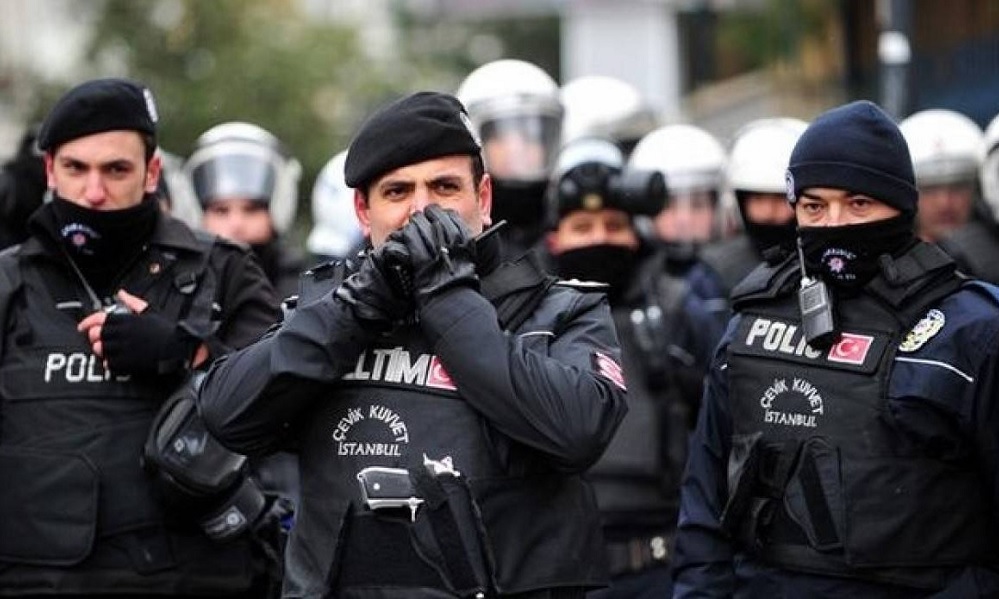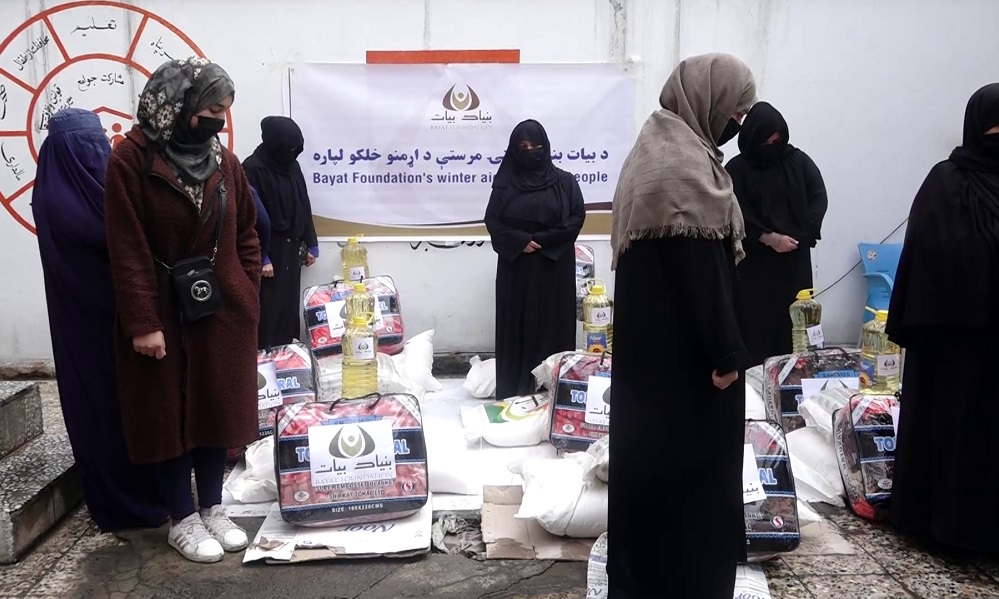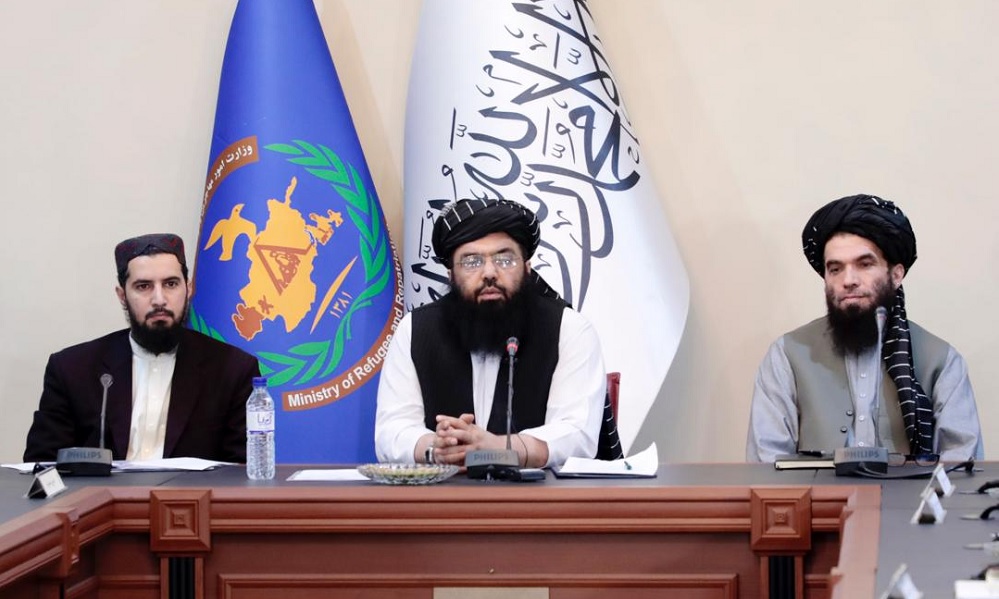Latest News
Without work and food, hundreds flee to Pakistan and Iran daily

A main bus terminal in Kabul is nowadays crowded as many residents of the city try to find their way out of Afghanistan into some neighboring countries.
Bus drivers at the Paitakht Bus Terminal said many families were trying to leave Kabul each day, but many could not afford the bus fare to destinations near the border cities.
“There are many families traveling (out of here) these says days. Most of them travel from here to Mazar-i-Sharif, and then many of them cross the border to Iran from Mazar-i-Sharif,” said bus driver Sahil.
Underlining the economic pressures building on Afghanistan’s new Islamic Emirate government, prices for staples like flour, fuel and rice have risen and long queues are still forming outside banks as they strictly ration withdrawals.
Some humanitarian aid has started to arrive and limited trade has returned across land borders with Pakistan, but a severe cash shortage is crippling day-to-day economic activity and decades of war have left much infrastructure in tatters.
Foreign aid payments, which accounted for 40% of Afghanistan’s gross domestic product, have all but stopped as the West considers how to deal with the IEA that, until August, led an insurgency against the U.S.-backed government.
Abdullah, one Kabul resident hoping to leave, said: “We will leave for Pakistan or Iran because we don’t have work here. We work the whole day for a single bite of bread. What else can we do? We have brought these items at home and have brought them here to sell, since there is no money and no work.”
This comes amid a continuing economic crisis including a severe cash shortage in the heavily dollarized country.
With dollar shipments to Afghanistan having been stopped and with sanctions against the IEA in place, thousands of government employees have not been paid and work has dried up especially as banks have a strict weekly withdrawal limit.
Members of a Russia-led security bloc that includes some countries adjacent or close to Afghanistan meanwhile have no plans to host Afghan refugees, bloc member Kazakhstan said last week.
The Collective Security Treaty Organisation (CSTO) includes three Central Asian nations – Tajikistan, which has a lengthy border with Afghanistan, Kyrgyzstan and Kazakhstan – as well as several more remote former Soviet republics.
At a heads-of-state meeting of the bloc in Tajikistan on Thursday, Kazakh President Kassym-Jomart Tokayev “supported the joint CSTO position that the placement of Afghan refugees or foreign military bases on our countries’ territories is unacceptable”, his office said in a statement.
Two more Central Asian nations, Uzbekistan and Turkmenistan, border Afghanistan but are not CSTO members. However, Uzbekistan has also said it would only allow short-term transit of refugees by planes to third countries.
Latest News
Turkish intelligence captures a Daesh member near the Durand Line

Turkish intelligence agents have captured a senior member of Daesh near the Durand Line, reportedly preventing planned suicide attacks in Turkey and other countries, according to Turkey’s state-run Anadolu Agency on Monday.
The suspect, identified as Mehmet Goren, is a Turkish citizen. He was apprehended during a covert operation and transferred to Turkey. Details on the timing of the operation or the involvement of Afghan and Pakistani authorities were not disclosed.
According to the report, Goren had risen through the ranks of Daesh and was allegedly tasked with carrying out suicide bombings in Turkey, Pakistan, Afghanistan, and Europe.
Daesh has a history of deadly attacks in Turkey, including the January 1, 2017 shooting at an Istanbul nightclub that killed 39 people.
Anadolu Agency reported that Goren’s arrest also provided intelligence on the group’s recruitment strategies and planned activities.
Latest News
Dozens of needy families in Kabul receive winter aid from Bayat Foundation

Dozens of needy families in Kabul’s fifth district have received essential winter assistance from the Bayat Foundation, as part of ongoing efforts to ease hardship during the cold season and worsening economic conditions.
According to foundation officials, the aid package includes staple food items such as flour, rice, and cooking oil, along with warm blankets to help families cope with freezing temperatures. Haji Mohammad Ismail, Deputy Head of Bayat Foundation, said the distribution began in Kabul and will soon be expanded to other provinces.
“Our assistance includes flour, rice, cooking oil, and blankets,” Ismail said. “Today, we started distributing these items in Kabul’s fifth district, and God willing, the aid will reach other provinces in the near future.”
Afghanistan continues to face widespread poverty, unemployment, and food insecurity, with many families struggling to meet basic needs, particularly during winter when access to work and heating becomes more difficult.Humanitarian organizations and charitable foundations have stepped up relief efforts to support those most affected.
Beneficiaries welcomed the assistance, describing it as a lifeline. “May God bless you for helping the poor. We had nothing and no work,” said one recipient. Another added, “Thank you for your help. Our flour was almost finished.”
Bayat Foundation officials stressed that winter aid distributions will continue in Kabul and other provinces in the coming days, as part of their broader commitment to supporting needy families across the country.
Latest News
Nearly seven million Afghan refugees return home since Islamic Emirate’s takeover

Since the Islamic Emirate came to power, approximately 6.8 million Afghans have returned home, either voluntarily or forcibly, from neighboring countries and other nations, according to the Minister of Refugees and Repatriation.
Mawlawi Abdul Kabir, speaking at a meeting on finalizing a draft plan for a permanent migration solution in Afghanistan, added that 1.3 million Afghans have been internally displaced due to natural disasters during the same period.
With winter approaching, widespread poverty and severe cold are threatening thousands of lives. Meanwhile, the forced expulsion of Afghan migrants from neighboring countries, particularly Iran and Pakistan, continues.
The Islamic Emirate has repeatedly urged neighboring states to allow migrants to return voluntarily. According to UNHCR, over two million Afghans have returned from Iran and Pakistan since the start of 2025.
-

 Latest News2 days ago
Latest News2 days agoAfghanistan signs 30-year deal for marble mining in Daikundi
-

 Latest News4 days ago
Latest News4 days agoAfghan border forces prevent illegal entry of hundreds into Iran
-

 Latest News3 days ago
Latest News3 days agoPakistan summons Afghan diplomat over deadly attack in North Waziristan
-

 Latest News3 days ago
Latest News3 days agoAfghan health minister calls for medical cooperation between Kabul and New Delhi
-

 Latest News4 days ago
Latest News4 days agoJapan allocates nearly $20 million in humanitarian aid for Afghanistan
-

 Latest News3 days ago
Latest News3 days agoKarzai urges reopening of girls’ schools and universities for Afghanistan’s bright future
-

 Health5 days ago
Health5 days agoAfghanistan seeks India’s support in standardizing traditional medicine
-

 World5 days ago
World5 days agoUS readies new Russia sanctions if Putin rejects peace deal, Bloomberg News reports
























